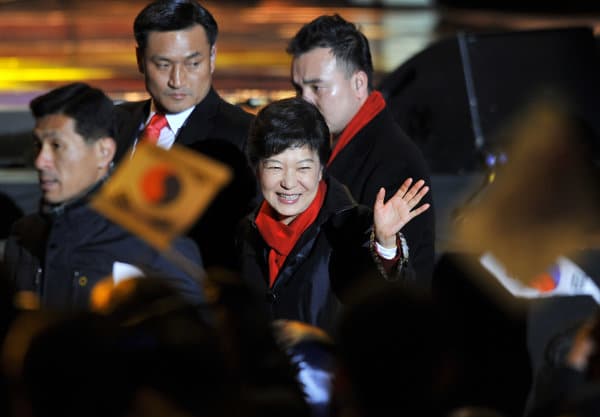South Korea Elects Woman President
December 21, 2012
 By CHOE SANG-HUN NEW YORK TIMES – SEOUL, South Korea — With the election of Park Geun-hye as president on Wednesday, South Korea extended the tenure of its staunchly pro-American governing party and handed power to the daughter of South Korea’s longest-ruling dictator, the first woman to win the post in a deeply patriarchal part of Asia.
By CHOE SANG-HUN NEW YORK TIMES – SEOUL, South Korea — With the election of Park Geun-hye as president on Wednesday, South Korea extended the tenure of its staunchly pro-American governing party and handed power to the daughter of South Korea’s longest-ruling dictator, the first woman to win the post in a deeply patriarchal part of Asia.
Voters appeared to prefer stability over her opponent’s calls for radical change in how one of the world’s strongest economies addresses the new problems of slowing growth and a growing wealth gap, as well as perennial military threats from North Korea.
With all of the votes counted, according to the National Election Commission, the conservative Ms. Park won 51.6 percent of the vote compared with 48 percent for Moon Jae-in, a liberal stalwart.
“This is a victory for the people’s wish to overcome crises and revive the economy,” Ms. Park, 60, told her cheering supporters, who gathered in freezing weather in downtown Seoul to celebrate a woman whose steeliness in the face of adversity is legend.
According to her memoir, when told her father, Park Chung-Hee, was assassinated in 1979, she responded, “Is everything all right along the border with North Korea?”
In its starkest terms, this election was about South Korea’s continuing confrontation with its authoritarian past, and confusion over whether a conservative or liberal approach would best serve the country as it tries to stop North Korea’s excesses and to handle growing frustration over economic inequality without derailing the country’s economic miracle. Mr. Moon, a former human rights lawyer who was once imprisoned for opposing the authoritarian rule of Ms. Park’s father, campaigned on restoring key liberal policies from the early 2000s, including a warm embrace of North Korea as a way of trying to curb its aggression.
While Ms. Park’s run for president was pioneering in one important way, because of her gender, few see her win as likely to significantly change the lot of women anytime soon in a traditional society where, despite some strong inroads in business and government, women’s most important job is still considered to be raising children. In an assessment echoed by voters, analysts said the clearest indication that little was changing was that Ms. Park won in good part on the appeal that a man — her father — still holds for many in a country still deeply divided over his legacy.

